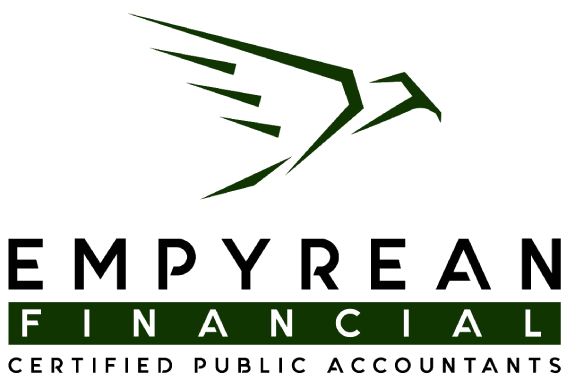As a business owner, you’re faced with countless decisions that impact your bottom line—but one of the most influential is selecting the right Certified Public Accountant (CPA). More than just a tax preparer, your CPA should be a long-term advisor who helps guide your financial decisions, reduce your liabilities, and support your business’s growth.
The right CPA can save you money. The wrong one can cost you more than you think.
So how do you know who’s the right fit for your business? Let’s break down what to look for and why it matters.

Why your CPA decision is so critical?
Many small business owners wait until tax season to search for a CPA—but by then, it may be too late to benefit from strategic guidance. A good CPA offers proactive tax planning, accurate financial reporting, and insight that helps you make better business decisions year-round.
At Empyrean Financial CPAs, we’ve seen firsthand how businesses benefit when they have a CPA who understands not just tax codes, but also industry dynamics, cash flow management, and growth strategy.
If you’re still wondering whether you need a CPA, read our article: Why Hiring a Good CPA Is an Investment, Not an Expense
1. Industry expertise: Do they know your world?
Different industries come with different financial challenges and opportunities. A CPA who works exclusively with tech startups may not be the best fit for a construction firm, and vice versa.
Look for a CPA who understands your business model, industry regulations, and common tax issues. Ask about their current client base. If they’ve worked with businesses similar to yours, they’ll be better equipped to provide targeted advice.
2. Full-service or tax-only? Understand their scope
Some CPAs focus strictly on tax compliance. Others provide year-round services including:
- Bookkeeping and payroll
- Tax planning and projections
- Business entity structuring
- IRS representation
- Financial forecasting and budgeting
Ideally, your CPA should be able to grow with your business. If you’re only getting tax prep, you may be missing out on critical support.
If you want to explore how a CPA can help beyond taxes, this blog is a must-read: How CPAs Help Small Businesses Beyond Taxes
3. Are they proactive or reactive?
A good CPA helps you avoid problems—not just fix them.
Ask how often they check in with clients. Do they offer mid-year tax planning? Will they alert you when law changes affect your business? Will they help you identify opportunities for deductions or credits you might not know about?
The most valuable CPAs are proactive partners who help you stay ahead, not just compliant.
4. Do they offer strategic value?
Your CPA should contribute to your long-term financial success.
They should be able to:
- Help you evaluate major financial decisions
- Offer recommendations on growth and investment
- Assist with cash flow optimization
- Structure your entity for maximum tax efficiency
For deeper insight, explore our guide on Best Tax-Saving Strategies for Q2 to see how CPAs add value throughout the year.
5. Technology & security standards
Today’s accounting landscape is digital. Your CPA should offer secure, cloud-based systems for document exchange and communication.
Ask about:
- Secure client portals
- Cloud accounting software compatibility (QuickBooks Online, Xero, etc.)
- Encryption protocols for sensitive data
Working with a CPA who prioritizes technology and security ensures both compliance and convenience.
6. Communication and responsiveness
You want a CPA who’s easy to reach, explains things clearly, and treats you like a priority—not just a transaction.
Ask:
- How quickly do they respond to emails or calls?
- Will you have access to the same contact person consistently?
- Are they open to quarterly or mid-year check-ins?
A responsive CPA becomes a trusted advisor. A non-responsive one becomes a liability.
7. Fee structure and transparency
Understand how your CPA charges. Some bill hourly, others offer flat rates or tiered packages. Make sure you know what’s included—and what’s not.
Don’t choose solely based on price. A CPA who charges more but helps you save thousands through smart strategy is worth the investment.
8. Licensing, credentials & experience
Always verify that your CPA is:
- Licensed by your state board of accountancy
- In good standing with no disciplinary history
- Actively completing continuing professional education (CPE)
- Preferably affiliated with reputable organizations like the AICPA or NATP
Experience matters too. A CPA who’s been advising businesses for years will bring insights that go beyond the textbooks.
Final thoughts: The right CPA is a Long-Term Asset
The decision to hire a CPA shouldn’t be last-minute or based on cost alone. You’re choosing a financial partner who can help you reduce taxes, grow your business, and avoid costly mistakes.
Take your time. Ask thoughtful questions. Look for someone who not only knows the numbers—but who takes time to know your business.
Looking for a CPA who does more than file returns?
At Empyrean Financial CPAs, we’re committed to helping business owners thrive with expert guidance, proactive planning, and year-round support.







